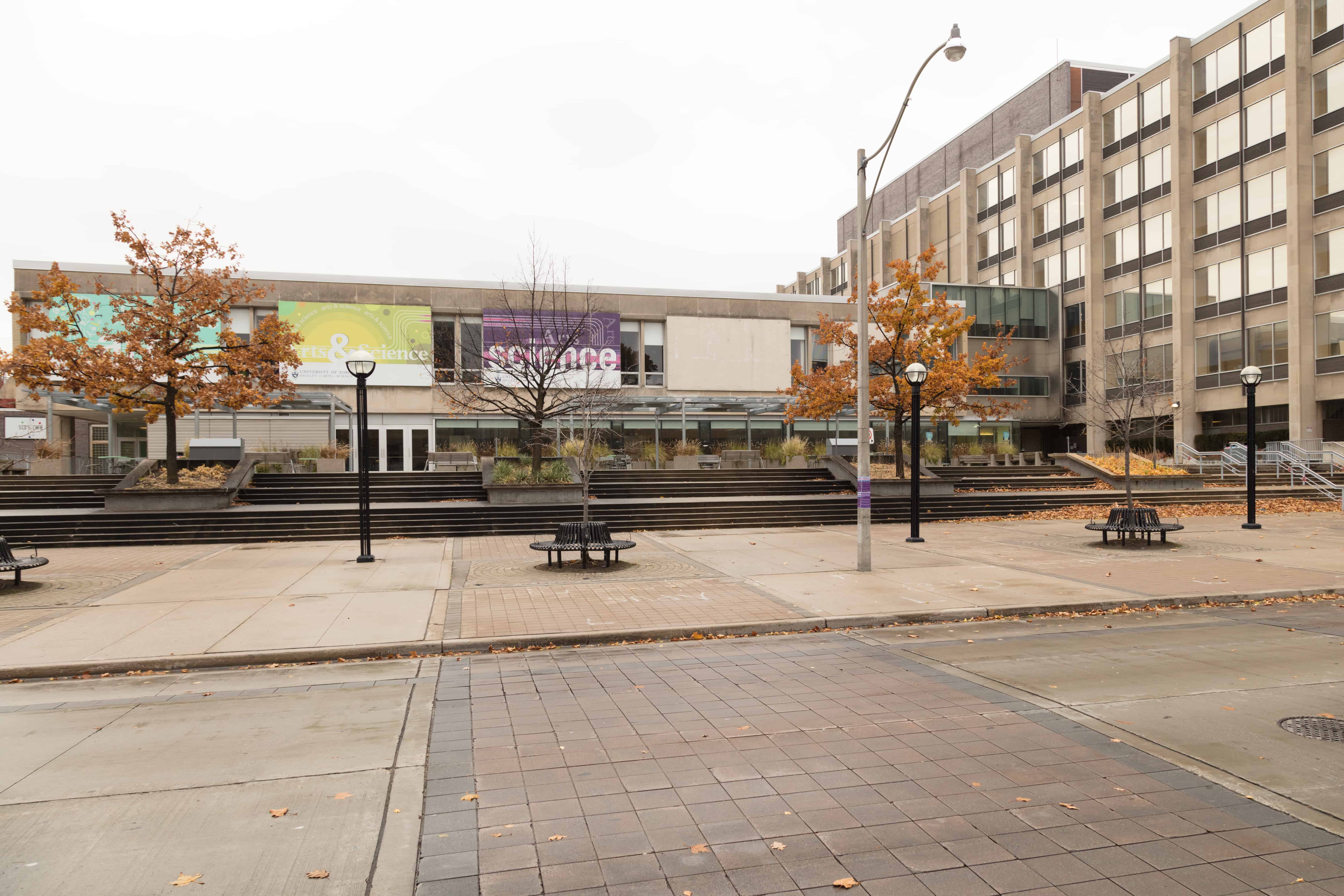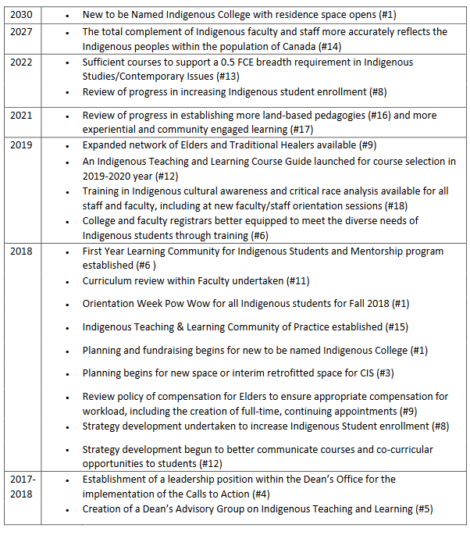The creation of new courses to study Indigenous languages and culture, the construction of an Indigenous College, and an expansion of support services for Indigenous students in the Faculty of Arts & Science (FAS) were called for in a report by the Decanal Working Group (DWG), an internal FAS commission.
The report was presented by FAS Dean David Cameron to the FAS Council in February.
The fulfilment of a key recommendation to create and construct a new “Indigenous College with Residence Space” was announced at a Massey College event on September 17. But the recommendation was only one of twenty Calls to Action released in a report by the DWG, which aim to ensure “equal opportunity” for academic achievement by Indigenous students, preserve “forms of cultural expression” of Indigenous societies, and support academic research into Indigenous history and culture at U of T.
New coursework on Indigenous languages and culture
In response to Call #10, the FAS supported plans for the Centre for Indigenous Studies (CIS) to develop Programs of Study “based on Indigenous languages such as Anishinaabemowin, Kanien’kéha, [and] Inuktitut.”
The CIS is a multi-departmental teaching and research group for staff and students involved in Indigenous studies. The suggested programs were based on existing programs in the French Department, described in the table below, sourced from the report.
Call #13 was for the development of “sufficient courses to support a 0.5 FCE breadth requirement in Indigenous Studies/Contemporary Issues,” preferably by 2022.
While the DWG did not call for a mandatory 0.5 FCE breadth requirement in the near future, its report did recommend that the FAS “revise breadth regulations to require that each student complete at least one breadth requirement” in Indigenous studies, once “sufficient appropriate offerings exist within each breadth category.”
The categories include “systems of knowledge [of local Indigenous communities]; the current structure and history of settler colonialism in Canada, and the residential school system.”
Such offerings may be available by 2022, should the Call to Action be implemented.
Call #16 was for the establishment of “land-based pedagogies”— that is, outdoor-based courses and/or field excursions designed for the study of the relationship between Indigenous cultures and nature.
In a similar vein, Call #17 addresses the creation of opportunities for students to participate in Indigenous language learning immersion, as well as community service and Work Study experiences.
The environment for language immersion “could start as a floor in an existing residence of an existing college.” The community service and Work Study program may take place in Indigenous communities.
Review of existing coursework on Indigenous studies
The FAS also called for a review to ensure that current “course content [within the FAS] concerning Indigenous peoples reflects best practices and contemporary scholarship,” via the development and circulation of informational resources to faculty.
There is also a call to increase awareness among “current and prospective students” of Indigenous coursework currently available, with the creation of an Indigenous Teaching and Learning course guide as a “good first step.”
Development of a graduate program and new spaces for Indigenous studies
Call #1 was for the construction of an Indigenous College available to both Indigenous and non-Indigenous students, which was announced in the Massey College event.
There is also a call for the development of a graduate program in Indigenous Studies, which is not currently offered by U of T but is offered by Trent University, the University of Alberta, the University of Manitoba, and the University of Saskatchewan. The program would be housed within the CIS.
Accommodating for these new programs requires the expansion of physical space available for the CIS, which may be fulfilled through the realization of Call #1.
Employment of Indigenous staff members and staff training on Indigenous issues
The hiring of Indigenous staff for registrarial positions, the development of training for registrarial and student support staff about issues especially relevant to Indigenous students, and an effort to increase awareness among staff about on-campus services available for Indigenous students was recommended in Call #6.
An increase in the number of Elders and Traditional Healers employed by U of T, as well as verification that their services will be accessible to “Indigenous Two-Spirited, LGBTQ and genderfluid students” was recommended by Call #9.
A Two-Spirited student would identify with a non-binary gender person officially recognized by Elders of an Indigenous community.
Call #14 was for an increase in the “number of Indigenous faculty and staff who have knowledge of Indigenous languages and culture” by 2027.
One of the calls to action wants to ensure that all FAS staff members are provided with critical race analysis training about the relationships between Canada and Indigenous people.
Following that, the provision of ongoing resources for faculty who wish to integrate Indigenous perspectives within existing courses — such as through team teaching, guest speakers, and field trips — was recommended by Call #19.
Expansions of support systems for Indigenous students
The report also called for new academic supports, a strategy to increase Indigenous student enrolment, as well as “networks of support for those engaged in Indigenous Teaching and Learning.”
Academic supports would include First Year Learning Communities, and networks of support could be created through events such as annual research fairs about Indigenous knowledge.
Leadership positions to advise on these changes
The DWG has also called for the creation of a leadership position within the Dean’s office to coordinate the implementation of the Calls to Action.
Call #5 was for the creation of a Dean’s Advisory Group on Indigenous Teaching and Learning to “follow through on the recommendations of this report.” The FAS has acted upon this, and has appointed Professor Pamela Klassen, Vice-Dean Undergraduate, and Professor Susan Hill, Director of the Centre for Indigenous Studies, as co-chairs.
In addition, Call #20 was for the Dean to formally respond to the DWG’s report, and to provide a road-map for implementation.
The DWG presented a possible timeline for the implementation of the Calls to Action of its report, as captured below:




